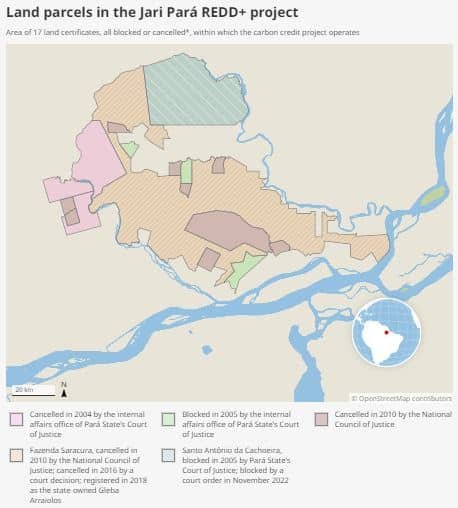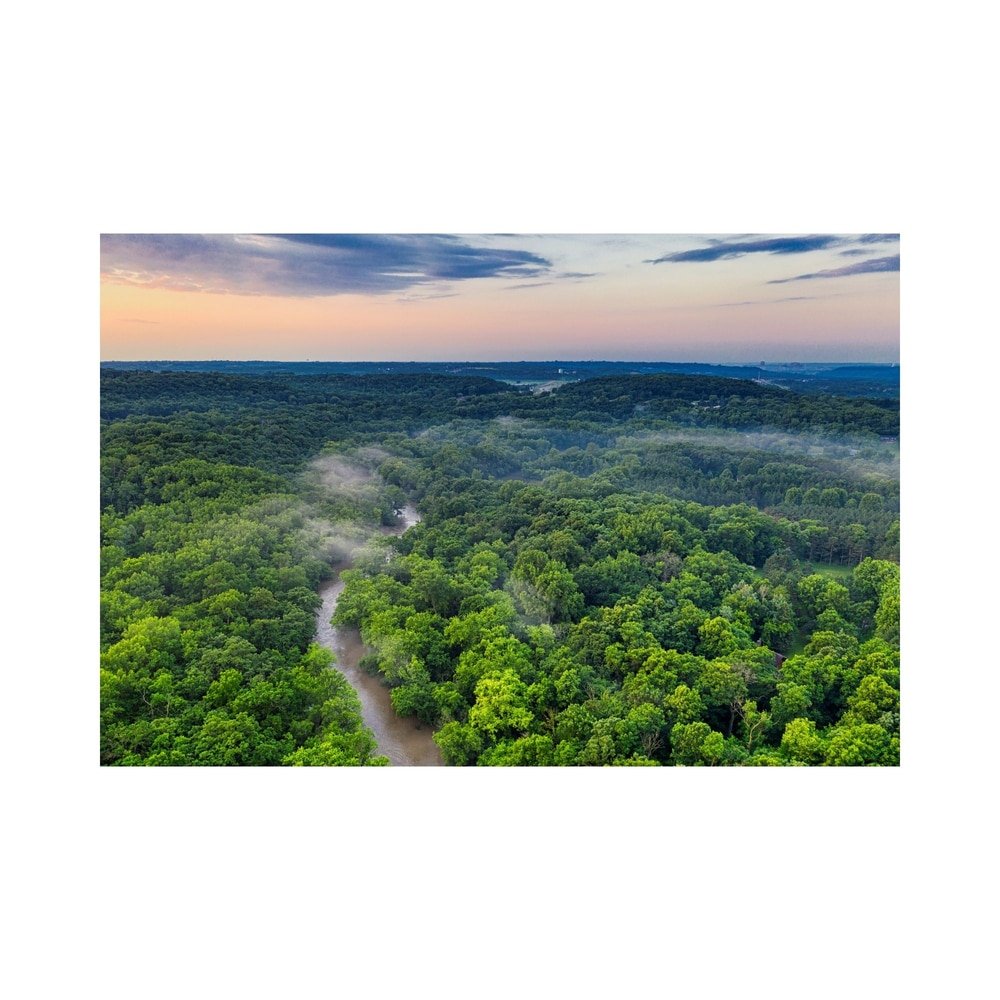The Jari Pará REDD+ Project, a corporate conservation initiative in Brazil’s Amazon rainforest, has come under scrutiny for selling carbon credits from publicly-owned land without state authorization.
The project covers around 497,000 hectares, which Verra approved to issue carbon credits. Verra is a leading organization that certifies offsets.
However, a Thomson Reuters Foundation’s company (Context News) investigation found that the project operated on disputed land ownership. This spurs a legal battle and raises concerns about the credibility of offsets from areas with contested land ownership.
The Disputed Jari Pará Project’s Land Ownership
Most of the forestry project area is registered as public land. Yet, the Jari Pará REDD+ project continued to operate on disputed land ownership, according to a Context investigation.
The project began in 2014 with the aim to reduce emissions from deforestation and forest degradation while protecting biodiversity. But a 2012 state court ruling found that the company claiming to own the land, Jari Celulose, did not have the right to do so. This resulted in the cancellation of the land title in 2016.
- In 2018, the state registered Fazenda Saracura, a 386,000-hectare land parcel, as public property, renaming it Gleba Arraiolos.
Despite this, the 2019 Jari Pará REDD+ Project description and validation documents listed on Verra’s website link to the land parcel registered under Jari Celulose in Brazil’s Land Management System (SIGEF). It states that the land title was canceled in 2016 and is invalid.
In particular, here is the project’s land parcels according to Context.

Brazilian law requires private businesses to have state permission to operate in public forests. But Jari Celulose claimed to be the “legitimate owner” of the estate in registration documents submitted to Verra in 2019.
Impact on the Credibility of Carbon Credits from Brazil’s Amazon
The REDD+ project’s sale of carbon credits based on invalid land ownership has raised doubts about the offsets’ credibility. Verra launched a review of the project and suspended the issuance of new carbon credits in response to the investigation.
International firms and domestic companies bought credits from the Jari Pará project to offset their climate-heating emissions while protecting forests. Big names include Janssen, 3M, CNN, and BWM, as well as Globo and Bradesco.
State officials and researchers argue that the registration of Fazenda Saracura as public property questions the REDD+ project’s credibility. The cancellations and blockages against Jari Celulose’s land claims ensure that carbon credits from Brazil’s Amazon cannot be traded, according to Herena Melo, the agrarian prosecutor who led the investigation.
While Jari Celulose claims to have the right to operate a carbon project on the land due to a 2021 Pará state lower court ruling, the case remains undecided.
The Brazil project’s sale of carbon credits from disputed land ownership highlights the unresolved issue of land-grabbing in the Amazon, with carbon credits making the situation more complex.
Verra has launched a review of the project. Still, state officials and researchers argue that land-grabbing remains a significant problem in the region.
The credibility of carbon credits from the Jari Pará REDD+ project in Brazil’s Amazon has come into question. This ultimately casts doubts about the validity of carbon offsets from areas with contested land ownership.

